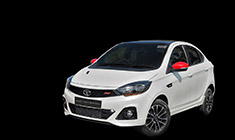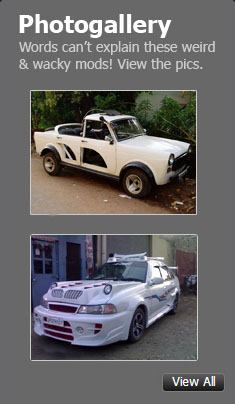News
2008 Swift owner upgrades to 2024 Honda Elevate; Ownership review
The Honda Elevate is an SUV for people who can appreciate the rock-solid mechanicals, practical utility, comfort, reliability, simplicity and long-term ownership.
BHPian shan_ned recently shared this with other enthusiasts:
“UNIX is basically a simple operating system, but you have to be a genius to understand the simplicity.” - Denis Ritche
Denis Ritche is the founder of C programming and one of the contributors to the Unix tradition. While growing up during my college days, his quote on Unix had a huge influence on me, and it moulded my thought process. When many had a completely opposite opinion about Unix being complex, there was a very good noble person (my Guru) who showed me a good direction. Through him, I got to know something about a very beautiful concept called “Unix Philosophy”. It was formed based on the experience of the early contributors of the Unix tradition. One of the core mantras of “Unix Philosophy” is taking the minimalistic approach. It is pragmatic and grounded in experience.
There were a few guiding principles or rules behind “Unix Philosophy”. One among them is the following rule:
Rule of Simplicity: Design for simplicity; add complexity only where you must.
In a nutshell about the design of Unix:
The beauty of Unix is the simplicity in its design.
Now, before you start doubting whether you entered the wrong room, hold on for a moment. The concept of “Simplicity” in “Unix Philosophy” continues to have a profound impact on my way of thinking. It also extends to the choice of the products I buy and use. And buying Honda Elevate too is based on such principles.

At a high level, some of the important factors which made me to go with Honda Elevate are as follows:
1) Everything about Honda Elevate, right from its design, engine, interiors, etc,, is its simplicity and minimalist approach.
2) Reliability and fuss free long-term ownership
3) Comfort and convenience
4) Trust on brand Honda in getting the same level of safety design from City to Elevate.
In short, Elevate shines in all the required fundamentals. Having said that, there are some cost-cutting things as well and we will discuss them in more detail in the latter sections.
Decision Process
As mentioned before, I wanted to keep the list of options as simple as possible.
My list of options (in the order of preference):
1) Maruti Suzuki Brezza
2) Toyota Urban Ryder/Suzuki Grand Vitara (Mild hybrid)
3) Honda Elevate
Before I can explain the rationale behind the above list, I had an obligation to look at one more list prepared by my family. Basically, they wanted only a crossover SUV and no sedan. And their list (in the order of preference):
1) Kia Seltos (any engine option)
2) Skoda Kushaq/Volkswagen Taigun
3) Hyundai Creta (any engine option)
4) Toyota Urban Ryder/Honda Elevate.
The above two lists give you an idea of how diverse the opinions are within a family . You can also notice that there is no place for Maruti Suzuki in the list given by my family. To me, Maruti Suzuki is no way inferior just because they are selling cars catering to the different segments of people in the society.
My requirements for owning a car:
1) Long term ownership: I always look for long term ownership of the vehicles I buy. All the vehicles which I bought were/are with me for more than 10+ years. There was one exception when I bought and sold 2014 Ninja 650 in a span of less than 4 years. My current big bike is 6+ years old and I will continue to keep it until I am fit enough to ride the motorcycle. My current old car is a 2008 Maruti Suzuki Swift (Petrol) which came with the beautiful G13BB engine. So, the new car also will be owned on a long-term basis.
2) No Diesel, hybrid and strict no to EV.
3) Reliability: There are a few points to touch upon. As the car will be in for long-term ownership, I wanted no compromise on this.
- No Turbo petrols - The first thing I did was rule out all the turbo petrol versions. Even if Honda/Toyota released a turbo petrol version, I wouldn’t even get closer to it in the showroom. Certainly, the turbo petrols are fun to drive fast, but I do have a strong opinion against considering our roads as a place to have fun and drive fast. I am a defensive driver and drive fast momentarily only when it is absolutely required (overtaking trucks on a 2-lane state highway). Fortunately, I am always accompanied by my family while driving, especially on the highways, and my mother keeps a strict watch on the speedo meter. For her, touching 100 kmph is a strict NO. Apart from the perspective of safe driving, I do give utmost priority to the comfort of all passengers inside the car. I don’t accelerate hard to put some uncomfortable inertial force on the passengers nor I do a quick lane change. For defensive driving, it doesn’t matter whether you drive Naturally-Aspirated (NA) or Turbo engines. I am not saying that all owners of turbo petrol cars drive their cars fast. There are good and bad apples eveywhere
Another reason for ruling out the turbo petrols is the long-term maintenance issue. Modern day turbo petrols are direct injection based. They are prone to more carbon build on the intake valves compared to the port injection method used in Naturally-Aspirated engines. To give you an idea about the problem, here are a few photos of the Throttle body assembly of a Triumph bike which was shared in one of the motorcycle groups. This is for a port injected Naturally-Aspirated engine.
The outer side of the throttle body assembly which is exposed towards the air filter:
The inner side of the throttle assembly which is exposed towards the engine manifold:
The outer side looks clean, and the inner side looks full of carbon deposits. The magnitude of the carbon buildup in case of a direct injection turbo petrol engine is much higher than what we see in these photos. Though a few turbo engines have a secondary port injection to minimize the problem, it will be still in excess compared to the Naturally-Aspirated port injection engines. And with the quality of fuel in India, it is very difficult to comprehend the long-term impact on the turbo petrol engines.
I was also worried about how sensitive the turbo petrol engines could be to the fuel available in India. I heard about a few cases where the fuel pumps in Hyundai Turbo petrol cars had some issues. Again, I do not know whether those issues are specific to the turbo petrol cars. Certainly, the highly charged up fuel system in a turbo petrol engine is sensitive to the petrol quality. And with Ethanol content increasing in the fuel, there are so many variables coming into the equation which may have some negative impact on the longevity/reliability of the turbo petrols in long run. This thread talks about the fuel pump issues faced by Hyundai turbo petrol cars.
https://www.team-bhp.com/forum/india...l-engines.html
Please don’t think that I am building a strong case against the turbo petrol. I am just listing some of the thoughts I encountered. My only point is that those who are planning to have long-term ownership of the cars should be aware of the pros and cons before taking a well-informed decision. Of course, all my concerns may not be relevant for people who don’t go for long-term ownership. At the same time, there are a few well maintained turbo petrol cars in other markets which have run 1Lakh+ kms. So, it is not completely a dark picture for turbo petrols. It is just that I am not confident of owning a turbo petrol car in indian conditions and have a peaceful/less expensive long term ownership.
- Time tested engine: Prefer an engine which evolved over a period. I know this goes against the sentiments of a good number of people who prefer engines with the latest technologies and designs. This is just me .
4) Safety: Good shell design for better safety. My own subjective opinion is that I am not fully comfortable with the current state of the collision mitigation technologies available. Again, this is just me. I encourage new buyers to be fully aware of all those technologies for taking a well-informed decision. Certainly, all the brands MUST invest in safety technologies in making them better to enhance the safety and make them available for all the range models.
5) Comfort: Prefer a car which offers good ride quality and comfort for the passengers. As my aged parents accompany me most of the time, ride quality is an important factor.
6) Service support: Last but not the least, the after sales support should be good. I had no issues with the service support from Maruti Suzuki when it came to servicing my Swift car. As per my experience, I would rate 10 out of 10 for the support I received.
Now with the above-mentioned requirements, I had to merge the two lists and filter out the cars which met those requirements. I convinced my family to drop the VW/Skoda cars as they were not anywhere close to meeting all the requirements, except for the safety.
The new list of cars (listed in no specific order):
1) Kia Seltos with NA Petrol engine
2) Hyundai Creta NA Petrol engine
3) Toyota Urban Ryder/Honda Elevate.
4) Suzuki Grand Vitara (Mild hybrid)
5) Maruti Suzuki Brezza
My first preference was Maruti Suzuki Brezza. No brand can get close to the service support of Maruti in terms of network reachability and the spare parts inventory. Then, my family members were not happy with my first choice. Their reasoning was that we already owned a Maruti car, and they felt Kia/Hyundai/VW were aspirational brands. I reluctantly dropped it from the list. Eventually, I had to drop Toyota Urban Ryder/Suzuki Grand Vittara as well. The reason was the lack of sufficient real estate. In my garage, I need to park both my motorcycle and the car. With the Urban Ryder/Grand Vittara, it was too tight to park. This is the main reason for me not to consider the sedans.
The filtered-out list:
1) Kia Seltos with NA Petrol engine
2) Hyundai Creta NA Petrol engine
3) Honda Elevate.
My better half and my son were more interested in Seltos/Creta. For them, the brand names of Kia/Hyundai were more aspirational than that of Toyota/Honda. Both Hyundai/Kia need to be appreciated as they invested their money/effort in enhancing their brand image. This is reflected in their sales figures. Having said that, I still preferred Honda over Kia/Hyundai. My very subjective opinion and based on the popular perception is that the Japanese brands are still one step ahead when it comes to quality control assurance. I admit this is purely based on my gut feeling/perception and not backed by any statistical data. Hearing a couple of stories from my friends on premature clutch wear&tear in Creta with less than 30000 kms on the odometer didn't help me. In the past, I had interacted with my office counterparts from Japan, and I know how diligent they are when it comes to ensuring better quality control. They used to walk an extra mile to get the desired quality.
This thread made me even more nervous about owning Hyundai or Kia.
https://www.team-bhp.com/forum/india...-response.html
Cars from all the brands do have some niggles, but the magnitude of the issues discussed in the above thread and Hyundai’s response didn’t give me the confidence. Certainly, not all Hyundai cars had the problems, but there was a good number of cases reported by multiple owners. Though my own opinion didn’t place trust on either Kia or Hyundai when it comes to long term reliability factor, I am sure both would have worked hard to improve their Quality control assurance.
Test drive:
As the Honda showroom was very close to my house, we decided to test drive Honda Elevate first and later with Seltos/Creta. I called Magum Honda showroom to check on the availability of test vehicles and they had the ZX CVT version. Before the test drive, my family and I wanted to check on the display vehicle. To my surprise, my family members felt very good about Honda Elevate’s overall appearance. They felt it was more like a true SUV due to its muscular appearance. We sat inside the display car to check on the interior. To put it in a nutshell, it can be described as “Simple and Elegant” without too many gadgets.
Then came the actual test drive. My family members accompanied me for the test drive. Just two things blew my mind: The suspension set up and the steering wheel response. The ride quality was in a different league. More on this in the later sections.
I wanted to make sure whether my family felt good about the ride quality. They too were impressed by the incredible ride quality. This sealed the deal in favor of Honda Elevate. So, our next plan for test driving Seltos/Creta was immediately dropped. Certainly, this is neither a fair way of comparing things nor an open-minded approach. When my family and I were impressed with the overall experience provided by Honda Elevate, we thought of not over complicating our choice.
Honestly speaking, my family would have loved the interiors of the Seltos/Creta. They look more premium and up market feel compared to the interiors of Honda Elevate. For me, I personally preferred a much simpler and elegant interior layout of Honda Elevate, and my family was impressed with the comfort, ride quality and the amount of space available inside the car. The ingress and egress were very good as per my son who is close to 6 feet. Finally, it was a big relief that we selected the right car for the family.
While my first test drive helped us in finalizing Honda Elevate, I did not get an opportunity to test drive the Manual Transmission (MT). My choice was MT and not CVT. I felt more connected to the car with MT. And my usage of Honda Elevate would be restricted to Highways ONLY and so I didn't have any issue of going with MT. Having said that, I experienced the CVT for the first time during the first test drive of Honda Elevate. I really liked how comfortable it was driving in the city traffic. It was extremely smooth as well. In short, driving the CVT was really a very good experience.
Continue reading BHPian shan_ned's ownership experience for more insights and information.










_0.jpg)







